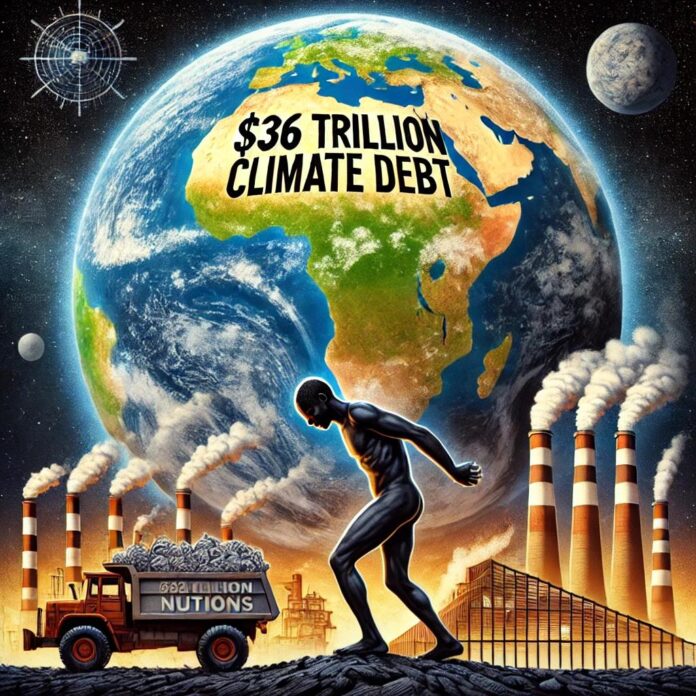By: Alieu Jallow
A new report by ActionAid International has exposed the staggering climate debt owed to Africa by the world’s wealthiest and most polluting nations. According to the report Who Owes Who? External Debts, Climate Debts, and Reparations in the Jubilee Year, Africa alone is owed at least $36 trillion in climate reparations—an amount far exceeding the continent’s total foreign debt.
As African leaders prepare to gather for the African Union (AU) Summit, the report highlights a dire reality: while African nations struggle to meet debt repayment obligations, rich countries continue to evade their financial responsibility for climate damage.
“It is a travesty that African nations are being crushed under the weight of foreign debt while the world’s richest countries evade their responsibility to pay for the climate crisis and reparations for historical injustices,” said Arthur Larok, Secretary General of ActionAid International.
The report reveals that in 2024 alone, lower-income African nations paid $60 billion in debt repayments—money that could have been used to improve healthcare, education, and climate adaptation efforts. Shockingly, rich nations should be paying Africa at least $1.4 trillion annually in climate finance—an amount 25 times greater than what Africa is currently sending back in debt payments.
Chikumbutso Ngosi, Young Urban Women Programme Manager at ActionAid International, condemned this injustice:
“Servicing external debts and complying with IMF loan conditions are undermining investments in health, education, and climate action, disproportionately affecting women and girls. Meanwhile, rich countries get away without paying their debts to Africa. How is that fair?”
Beyond climate finance, the report exposes how unfair financial policies keep Africa trapped in debt. The average interest rate on loans for African nations is 9.8%—12 times higher than the 0.8% rate paid by Germany. This predatory lending system has created a cycle of dependency, making it nearly impossible for African countries to fund their development.
With the African Union declaring 2025 as the Year of Reparations, ActionAid is calling on African leaders to demand immediate debt cancellation and push for a new global financial framework that prioritizes Africa’s development and climate needs. The report urges the AU and global movements to:
- Establish a new UN Framework Convention on Debt to replace the existing financial system, which is rooted in colonial-era structures controlled by the International Monetary Fund (IMF).
- Demand immediate debt cancellation as a crucial first step toward repaying the climate debt and other reparations owed to Africa.
Andrew Mamedu, Country Director of ActionAid Nigeria, stressed the urgency of this reform:
“For Africa to overcome the debt crisis and climate challenges, we need debt cancellation and a complete break from the colonial debt system that has burdened us for decades. The AU must ensure a new UN Framework on Debt is agreed upon in this Jubilee year.”
Officials believe that 2025 presents a critical moment for African nations to demand a shift in global financial policies. Joy Mabenge, Country Director of ActionAid Zimbabwe, underscored the need for systemic change:
“We need a fundamental overhaul of the global financial architecture, shifting the power over debt away from the IMF to a more representative and inclusive UN body.”
With mounting evidence of unpaid climate debt and exploitative financial practices, the pressure is now on African leaders to demand justice. The question remains: Will the AU seize this opportunity to chart a new financial future for the continent?




